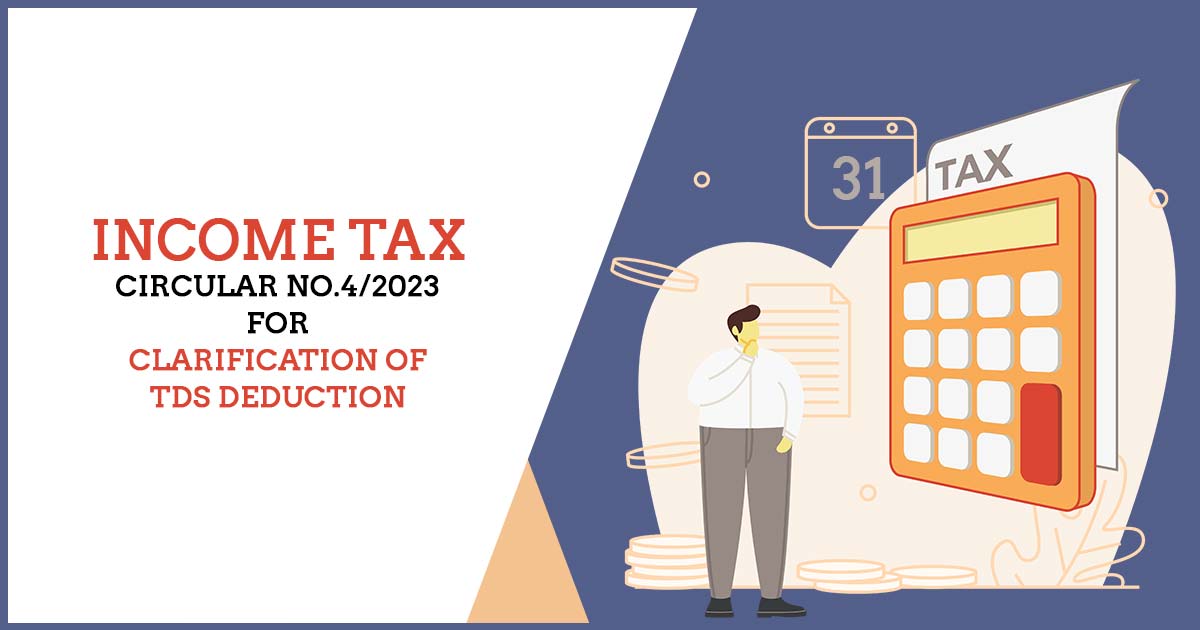
According to a statement made on Wednesday by the Income Tax Department, businesses must ask workers specific questions regarding their preferred tax structure for the current fiscal year in order to properly calculate TDS deductions.
According to the new, updated tax system presented in Budget 2023–24, if an employee does not provide information to their employer about the preferred tax regime, the employer will be required to withhold TDS from pay income.
Each taxpayer is free to decide whether they want to come under the previous tax code and qualify for deductions and exemptions. They will also receive low tax rates but no exemptions if they want to come under the new tax system.
The optional exemption-free tax system, which is governed by Section 115BAC of the Internal Revenue Code, was modified by the Budget 2023–24, which was presented on February 1. It was done to encourage taxpayers in the salaried class to accept the new tax system. For a taxpayer, the adopted concessional tax regime became the default one.
An explanation about the deduction of Tax Deducted at Source (TDS) from the employer’s side was issued by the Central Board of Direct Taxes (CBDT) on Wednesday.
The CBDT announced that a deductor or employer shall look for its employees’ information. It could be regarding their intended tax regime. And it is expected of the employees to be faithful regarding the same. The deductor shall calculate the turnover and deduct the TDS according to the relevant method.
It was added that if no notification is given by the employee, it would be taken as if they are still under the new tax regime.
For people with an annual income up to Rs 7 lakh, there will be no tax under the new tax system as stated in the Budget. Additionally, the basic exemption level has been raised to Rs. 3 lakh, and a standard deduction of Rs. 50,000 is now permitted.
The imposed tax rate under the new tax regime is as follows:
- 5% on earnings of between 3-6 lakh
- 10% on income between 6-9 lakh
- 15% on income between 9-12 lakh
- 20% on income between 12-15 lakh
- 30% tax will be levied if the income crosses Rs. 15 lahks and above.
The basic exemption limit is Rs 2.5 lakh under the previous tax system, which provides for exemptions and deductions. Additionally, those who earn less than Rs. 5 lakh per year are exempt from paying taxes. Below are the tax rates applicable on annual income as per the old tax regime.
- 5% tax is applied on income between Rs. 2.5 lakh and Rs. 5 lakh
- 20% tax is applied on income between Rs. 5 lakh and Rs. 10 lakh
- 30% tax on income over Rs. 10 lakh
The CBDT said that it had learned from the concerns about TDS on a person’s pay income under Section 192 of the Act. Because the deductor, which is an employer, would not be able to predict whether the person, which is an employee, would choose to pull out under the Section 115 BAC of the Act.
Om Rajpurohit, Joint Partner (Corporate & International Tax) at AMRG & Associates, stated that even after informing employers, they can later select the tax regime they want to be in when filing an IT return.
Further, he added in the next specification that if the employee does not fill out relevant details as per the chosen regime, default mode will be used in this case. Doing so will prevent the employer from TDS default litigation.









